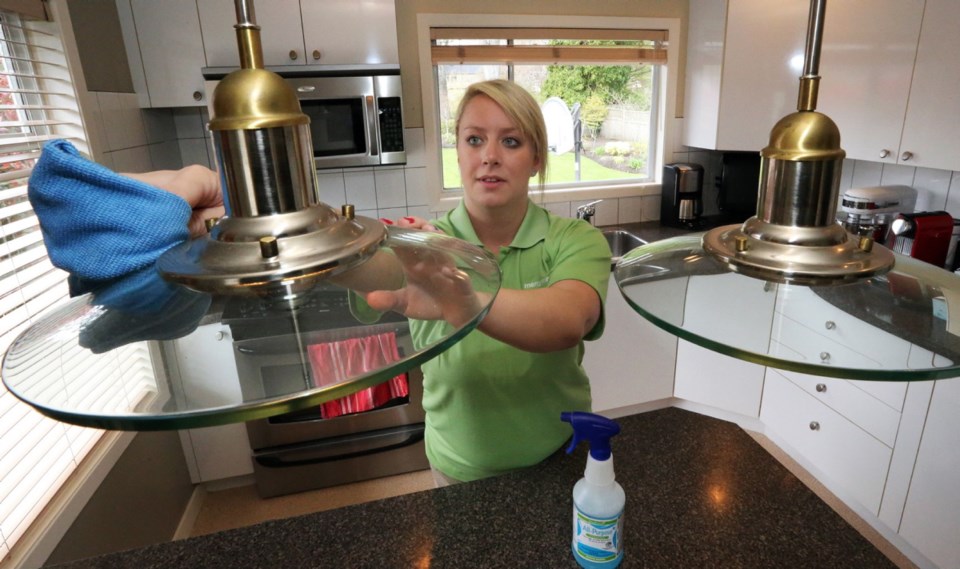Bacterial infections and food-borne illness may be prime targets of spring cleaners, but the most common hazard is physical injury, says a Victoria public health doctor.
As the weather warms enough to open windows, the urge to break out the mops, rags and buckets can overtake men and women cooped up all winter with their own smells and tracked-in dirt.
And groups like the U.S. Academy of Nutrition and Dietetics recently encouraged spring cleaning as a way to give the kitchen, in particular, a safety cleaning — including fridges, counters or any spots where raw meat is routinely stored.
But Dr. Dee Hoyano, medical health officer for the Vancouver Island Health Authority, urges caution in tackling spring cleaning, especially after a long and physically inactive winter.
Hoyano said the biggest public-health concerns are the physical injuries — from falling off a ladder while cleaning windows, for example, or muscle strains while pulling or lifting a heavy object.
“People are getting out, they are washing their outdoor windows with ladders or rummaging around garages and attics,” she said.
“Every year, we hear about people falling off ladders or injuring themselves trying to lift things that are too heavy, or they are not using the correct technique.”
Despite the risk of injury, cleaning out the fridge, cupboards and surfaces and utensils that come into contact with food is still a good idea, she said.
Hot soapy water is effective — or a solution of chlorine bleach in water for things like cutting boards or meat drawers. The U.S. Academy of Nutrition recommends about one tablespoon of bleach to four litres of water.
Hoyano said bacteria, such as those that cause salmonella or campylobacter, are the most common cause of illness. But viruses, such as noroviruses, are also transmittable.
All three can cause symptoms including nausea, fever, cramps and diarrhea. They are of special danger for the elderly, the young and anyone whose immune system has been compromised.
That means it’s a good idea to empty the fridge and cupboards, give them a good wiping inside and letting them dry out before replacing the food.
But if someone is determined to clean below and behind the fridge, stove or any other major appliance, it’s best to consider asking for help, Hoyano said.
A number of cleaning and maid services are available for hire in Victoria, and most have spring-cleaning packages and quotes available.
Karen McClean of Merry Maids in Victoria said it’s not uncommon to hear from customers about spring-cleaning injuries.
“They go to clean the top of the cupboards and they try to step down and they slip, and it’s just a nightmare.”
McClean said spring cleaning is typically a three- to four-hour job for two cleaners. It involves moving furniture and major appliances, emptying cupboards and generally getting into nooks and crannies typically missed by most homekeepers.
“Everybody is pretty good about making sure everything looks nice,” she said. “But spring and fall cleaning is about going into detail areas.”



